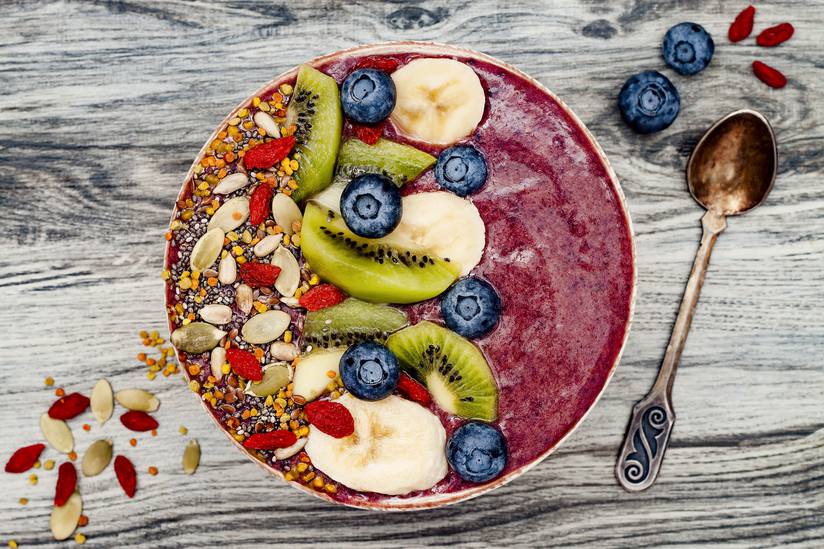Learn about brain health and nootropics to boost brain function
These functional foods can improve your health


Is asparagus the key to a better night's sleep? Can sauerkraut improve your memory? And does wheatgrass give you more energy than coffee? Also, why is it called "moon milk," if it doesn't come from the moon?
These are the food questions we're asking in 2019. In a new report from Israel-based food trend analytics startup Tastewise, functional foods – foods that serve a specific purpose or function – are top of mind among eaters around the world this year. And that trend is expected to grow significantly in the years to come.
According to the report, one out of every three conversations about food centers on its functionality. "Consumers want to know what benefits their food will afford them – will it improve gut health? Promote healthier skin? Increase focus? – and make their choices accordingly," the report stated.
So what are the hottest functional foods right now? That depends on what aspects of your health are most important to you:
Sleep

The effects of poor sleep are numerous. Aside from feeling altogether lousy, you also run a higher risk of falling asleep behind the wheel, potentially harming others on the road (and yourself). To improve this, you're downloading apps and wearing wristbands to track your sleep, and you're listening to advice: what habits to break, what music to play, what foods to eat/avoid ...
- Asparagus: Contains folate, a vitamin linked to restful sleep.
- Moon milk: A warm milk concoction that’s sipped before bed. Even some restaurants are starting to offer it. Recipes vary; ingredients include ginger, cardamon and ground ashwagandha.
- Golden milk: A turmeric-based drink that also contains cinnamon, ginger and a sweetener of your choice.
Energy

In the daily demands of life, power naps or long breaks aren't always in the cards. You need an energy boost that lasts all day – but not from artificial sources like energy drinks. Instead, you're seeking natural remedies:
- Wheatgrass: Nutrient-rich sprouted leaves thought to promote energy and focus.
- Sesame: A primary ingredient in many energy bars. It's now a frequent request among restaurant-goers, too.
- Green tea: Benefits abound, but energy is chief among them.
Anti-inflammatory

If you're coping with a chronic illness, it's likely you are looking for ingredients that protect against inflammation. Adding such foods to their diets reduces flare-ups and minimizes symptoms:
- Pumpkin: Now an autumnal staple, the gourd is being touted for its anti-inflammatory properties.
- Walnuts: These contain higher antioxidant activity and more omega-3 fats than any other common nut.
- Pomegranates: Another fall favorite, known to help alleviate pain and fight against cartilage degradation.
Brain health

People are increasingly embracing brain-boosting ingredients, discovering the effects they have on their overall health, from memory to organ function to sleep patterns:
- Sweet potatoes: The superfood of the tuber family, sweet potatoes are high in beta-carotene, which has been linked to better brain function.
- Dates: Rich in flavonoids, a group of antioxidants linked to all sorts of benefits, including brain health.
- Sauerkraut: A popular German condiment, sauerkraut is one of several fermented foods thought to support memory and cognition.
Skin care

People are getting their fruits, vegetables and proteins from both the foods they eat and the products they apply to their skin, improving your body's largest organ from the inside out. In the skin care industry, natural and plant-based products are all the rage:
- Collagen: It's a naturally occurring and abundant protein in your body, and now, people are consuming it as a supplement.
- Kiwi: This fruit contains large amounts of vitamin C, which helps your body produce the aforementioned collagen.
- Goji berries: Polysaccharides are believed to have antioxidant properties, and their presence in goji berries helps increase skin hydration.

Tel Aviv high school students invent superfood to help malnourished African children
Click here to view full article